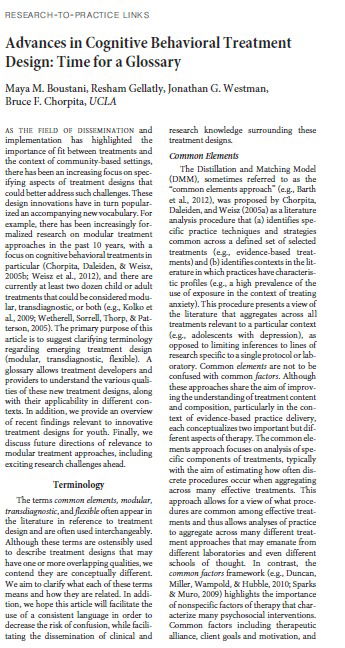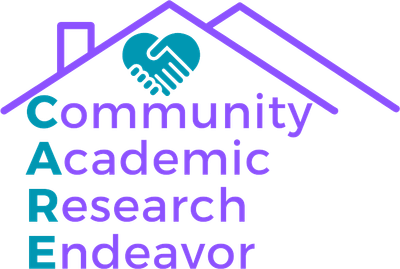Advances in Cognitive Behavioral Treatment Design: Time for a Glossary.

As the field of dissemination and implementation has highlighted the importance of fit between treatments and the context of community-based settings, there has been an increasing focus on specifying aspects of treatment designs that could better address such challenges. These design innovations have in turn popularized an accompanying new vocabulary. For example, there has been increasingly formalized research on modular treatment approaches in the past 10 years, with a focus on cognitive behavioral treatments in particular (Chorpita, Daleiden, & Weisz, 2005b; Weisz et al., 2012), and there are currently at least two dozen child or adult treatments that could be considered modular, transdiagnostic, or both (e.g., Kolko et al., 2009; Wetherell, Sorrell, Thorp, & Patterson, 2005). The primary purpose of this article is to suggest clarifying terminology regarding emerging treatment design (modular, transdiagnostic, flexible). A glossary allows treatment developers and providers to understand the various qualities of these new treatment designs, along with their applicability in different contexts. In addition, we provide an overview of recent findings relevant to innovative treatment designs for youth. Finally, we discuss future directions of relevance to modular treatment approaches, including exciting research challenges ahead.
Full text available here: Boustani et al (2017)



